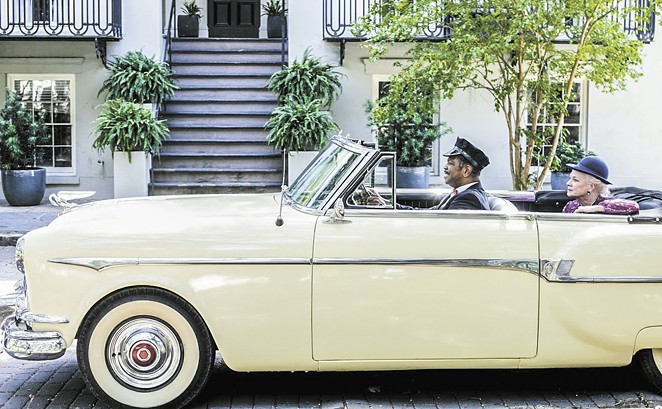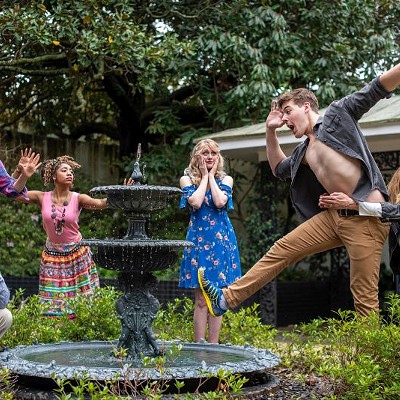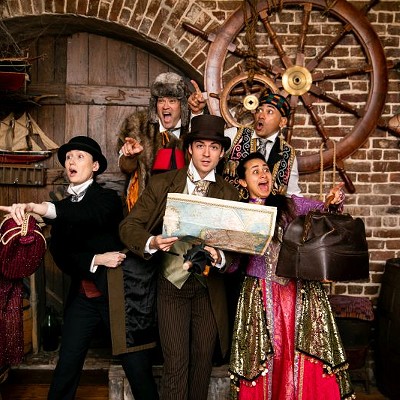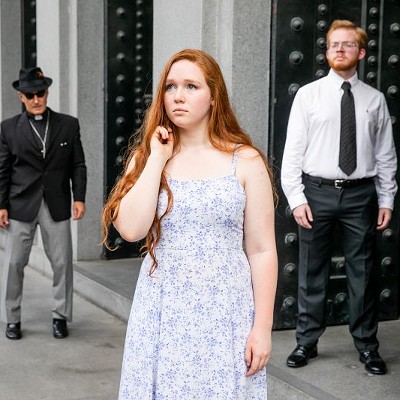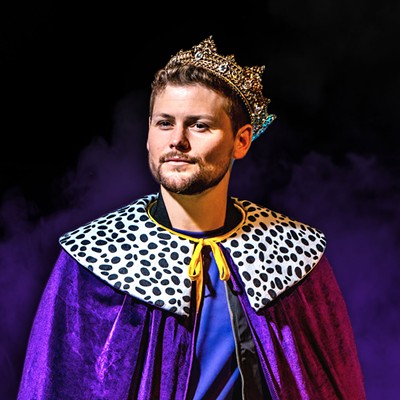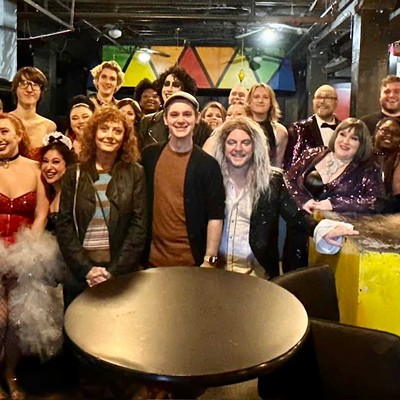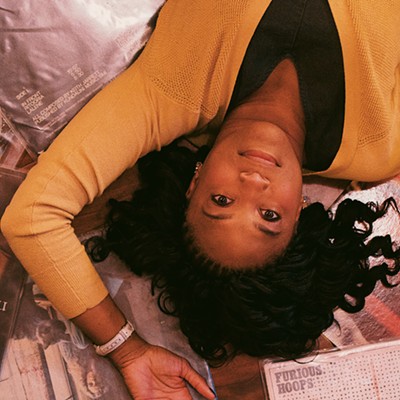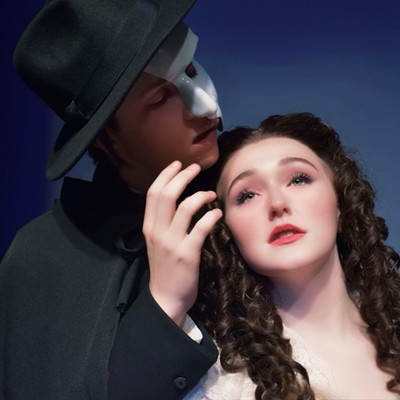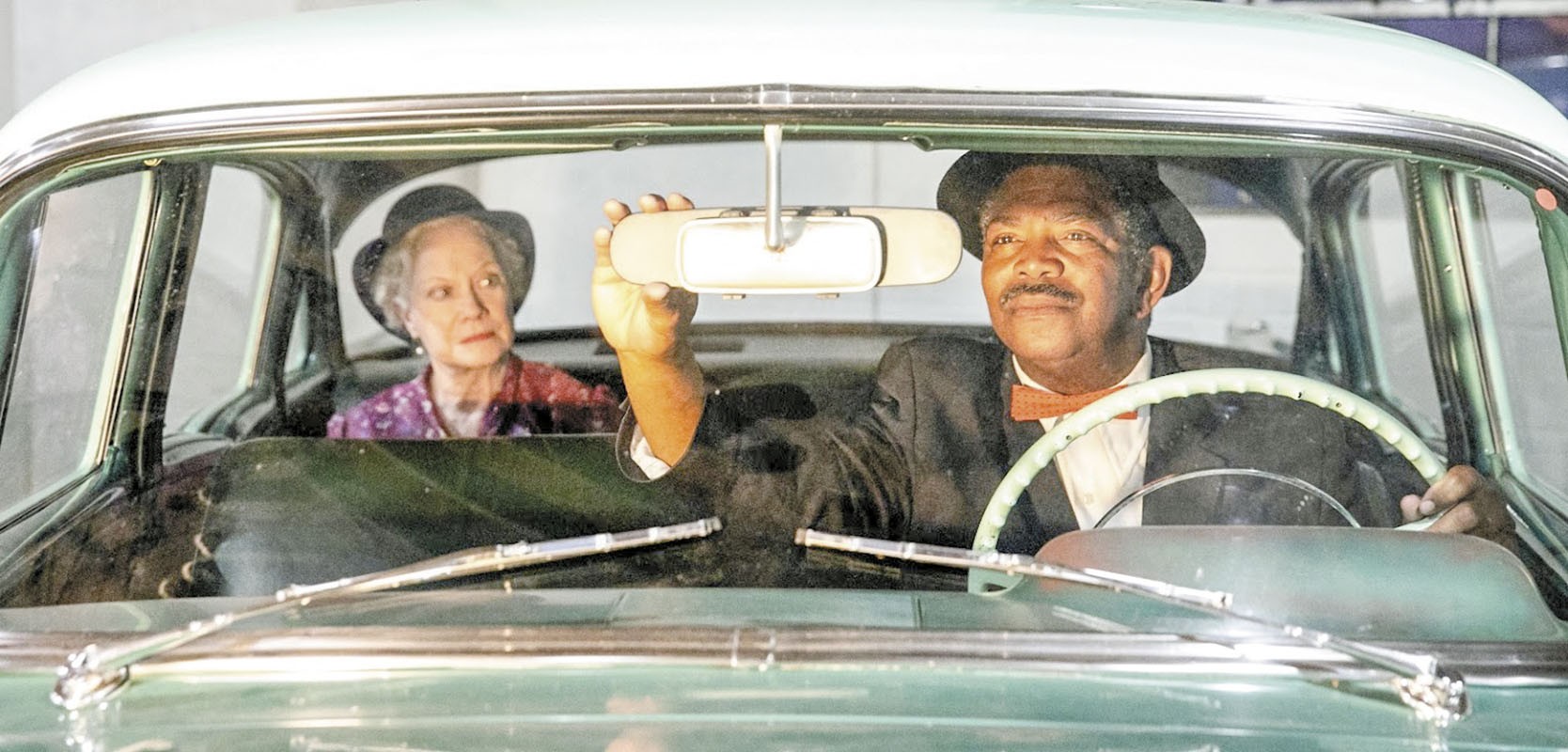
MOST everyone knows Driving Miss Daisy from the film adaptation starring Morgan Freeman, but it began as a beloved play written by Alfred Uhrey and lives on today in theatres across the world. Savannah Repertory Theatre is the latest to tackle the classic story of an elderly Jewish widow living in Atlanta during the late 1940s, who forms a friendship with her African-American driver over the course of two decades.
The show is poignant and relevant to many of the issues that are socially and culturally important today, and it remains a beloved story three decades later. The Savannah Rep production features three actors, who tell the story from a more contained and intimate perspective.
Ahead of opening night, we spoke to stars Patricia Miller and Patric Robinson, who play Miss Daisy and Hoke Coleburn, respectively.
Individually, what are your backgrounds as actors and what led you to Savannah Rep?
Miller: Patric, would you like to go first?
Robinson: Ladies first!
Miller: He’s such a gentleman [laughs]. I’m originally from Vidalia, Georgia, and I went to the University of Georgia. I apprenticed at the Alliance Theatre in Atlanta, and then went to New York because, why not? I lived there for many years and studied with some of the great teachers, and started getting work. I got cast in a little show called Vanities, which at the time was the longest-running off-Broadway show. It was wonderful—Kathy Bates was in the original cast, and it was a real thrill to work with a powerhouse like her.
Then I did regional theater, and founded a playwriting conference in Montana. I managed a couple of theaters in New York and started writing, and then met my husband Jim Wann. We’ve worked together for over 25 years now, and now I’m very happily at the Savannah Rep. The Rep is a great gift to Savannah. I’ve always thought that Savannah should have a professional theater, and now, thank the Lord, they do!
Robinson: I fell in love with theater as a youngster in Jacksonville, Florida. I was originally drawn to comedians like Flip Wilson and Carol Burnett. But I’ve always been drawn to the performing arts, and they had a drama program at the high school that I attended. I did that for three years, and then right after high school I went straight to New York.
I worked up there for a little bit in theater, with a company called Salt and Pepper. But as usually goes, when you go up to the big city with one intention in mind, you end up doing other things. I started doing the comedian thing, and it was interesting training. But I found out a long time ago that theater is my first love—there are many things that I can do, but I can’t think of anything I’d rather do. So I decided to make it a career choice. Savannah Rep is the first equity theater in Savannah, and they gave me my first equity contract. So I’m doubly delighted to be working with them, and I’m in good company. They’re all wonderful to work with.
Miller: It was a thrill to be witness to Patric signing his first equity contract. And we have a fabulous director, Sandra Karas, who is just fantastic to work with. She’s just got ideas and energy for days.
This is a play that obviously got a film adaptation, which a lot of people know. How is this production different, and what sets the play apart from the film?
Miller: For my money, there is nothing better than the play itself, which won a Pulitzer Prize by the way. I loved the movie, and thought it was wonderful. But I happened to have been fortunate enough to see it when it was the original play in workshop, before it went into production. It was in a rehearsal room with Dana Ivey and Morgan Freeman, and it was one of the most exciting pieces of theater I had ever seen in my life. I cried my eyes out, went home, got on the phone to Delta Airlines and made reservations to come home and see my grandmother. It’s a beautiful play, and I think it’s a love story.
Robinson: I agree. You’ve got two different people who, over the span of 25 years, come to be the best of friends. I think it’s a sweet and charming story as well.
I think the story sits well in our world currently, as a positive telling of a deep friendship and connection that transcends barriers.
Miller: Also, these are two people who learn to hear each other and talk with each other. That’s the growth of the relationship, and if there’s anything this world needs right now it’s for people to learn to hear each other and talk to each other.
Robinson: And it’s about tolerance as well, and acceptance.
Is there a moment in the show that has struck a chord with each of you?
Miller: There are lots of moments that moved me—when we did the first stumble through, this moment brought tears to my eyes; it’s moment where she says to Hoke, “You’re my best friend.” The director cried, so I may cry. Get ready, Patrick!
Robinson: Hey, let the tears roll! As Patricia said, there are several moments in the show that I love and that are meaningful to me. But I was meditating on it this morning, and there is a line that Hoke says to Miss Daisy early on in the play when she’s upset about not being able to drive. He says, “You can’t drive, but you probably can do a lot of things that I can’t do. It all works out.” It works out in the end, and I love that line.

